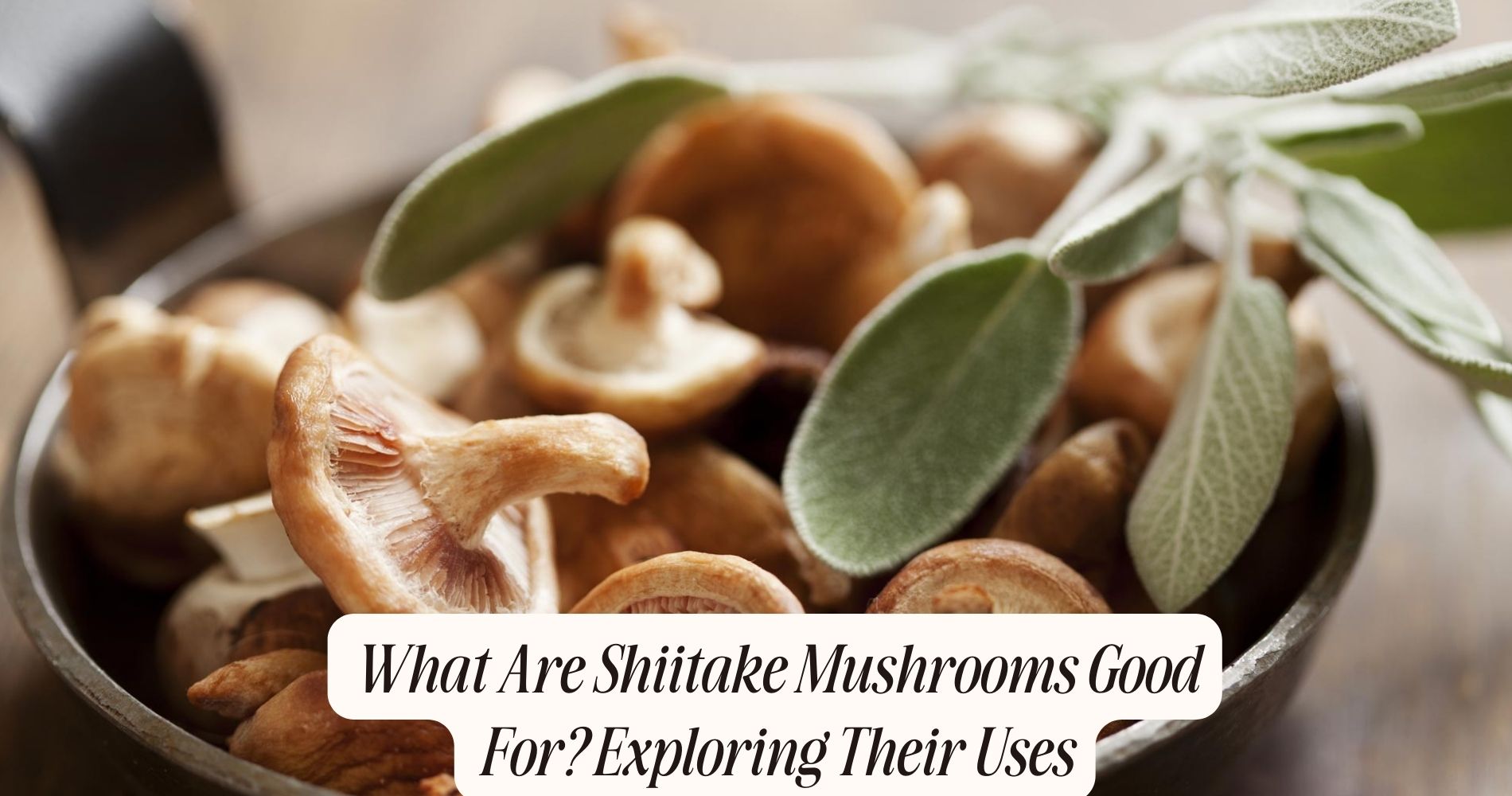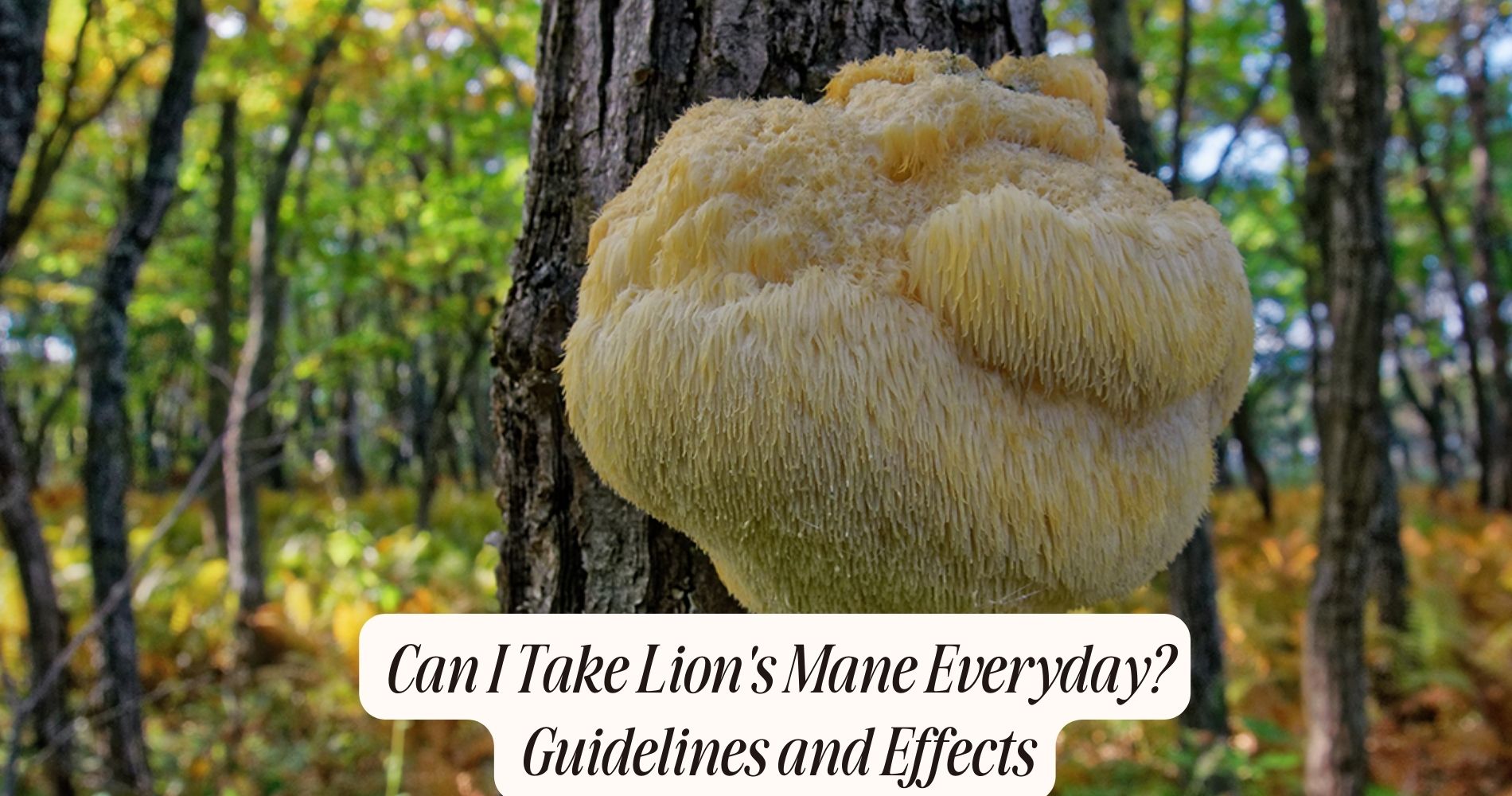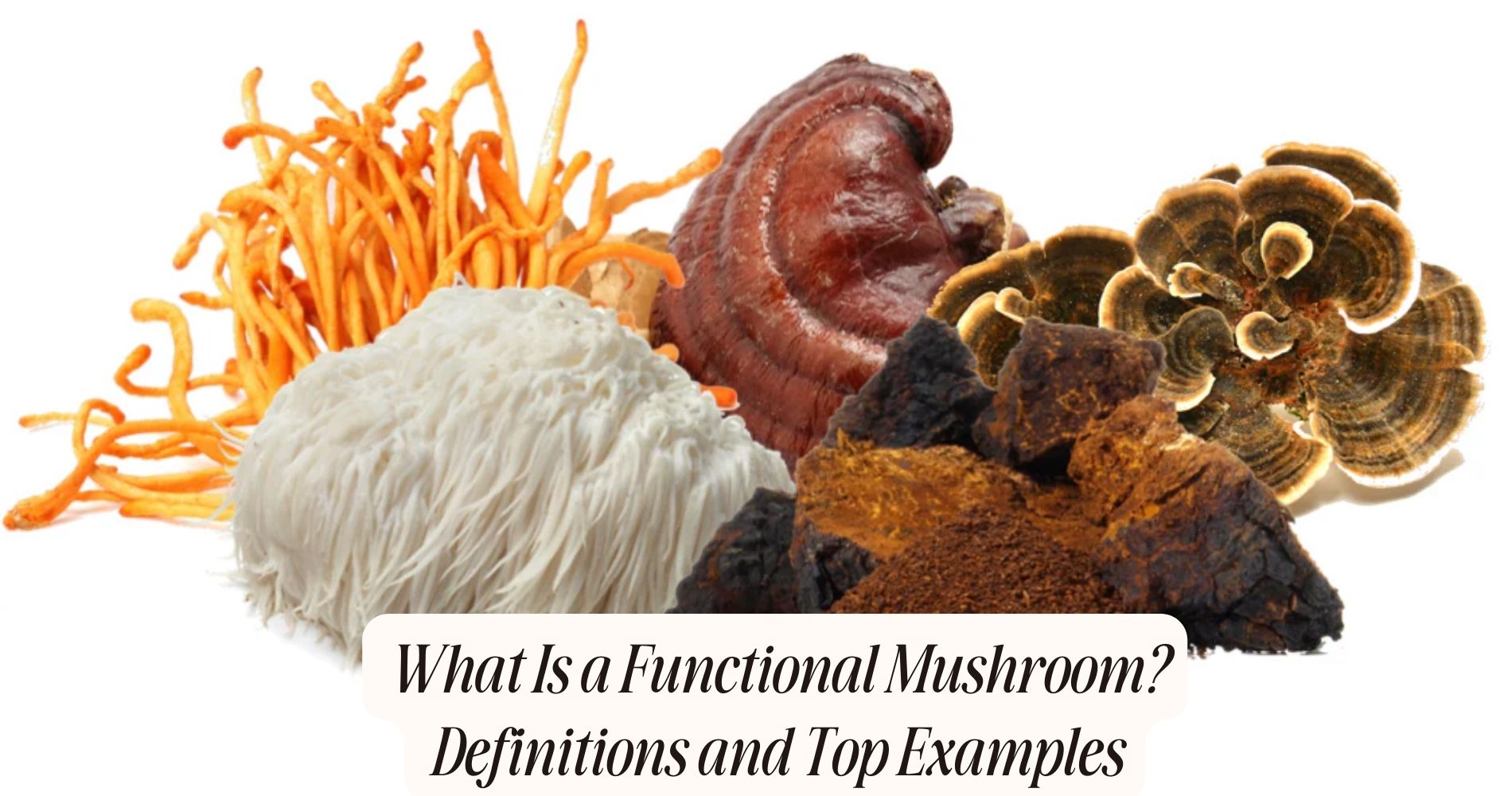
What Are Shiitake Mushrooms Good For? Exploring Their Uses
What are shiitake mushrooms good for? Shiitake mushrooms are a nutritional powerhouse, rich in B vitamins, vitamin D2, and essential minerals like copper and selenium. They enhance your immune function with compounds like lentinan and polysaccharides that stimulate macrophages and T-lymphocytes. For heart health, eritadine inhibits cholesterol production, and beta-glucans reduce cholesterol levels and aid blood pressure regulation. Their potent antioxidants, like ergothioneine, combat oxidative stress, while their anti-inflammatory properties alleviate conditions like arthritis. With high fiber content, they're great for weight management and offer a versatile addition to your diet. Discover more about their traditional medicinal uses and overall health benefits.
Nutritional Profile
Shiitake mushrooms boast a rich nutritional profile, featuring essential vitamins, minerals, and bioactive compounds that can support overall health.
When you examine their vitamin content, you'll find shiitakes are particularly high in B vitamins, including B2 (riboflavin), B3 (niacin), B5 (pantothenic acid), B6 (pyridoxine), and B9 (folate). These vitamins are important for energy production, DNA synthesis, and maintaining proper neurological function. Additionally, shiitake mushrooms contain vitamin D, specifically D2 (ergocalciferol), which plays a significant role in calcium absorption and bone health.

Moving on to their mineral composition, shiitake mushrooms are a good source of essential minerals like copper, selenium, zinc, and manganese. Copper aids in forming red blood cells and maintaining healthy nerves and immune function. Selenium acts as an antioxidant, protecting cells from damage. Zinc is essential for enzyme function and protein synthesis, while manganese contributes to bone formation and metabolic processes. The presence of potassium and phosphorus further enhances their nutritional value, supporting cardiovascular health and energy production, respectively.
Immune System Support
Beyond their impressive nutritional profile, these mushrooms exhibit potent immune-boosting properties driven by unique bioactive compounds such as lentinan, which enhances the function of immune cells.
Lentinan, a type of beta-glucan, specifically stimulates macrophages, T-lymphocytes, and natural killer cells, bolstering your body's first line of defense against pathogens. The beta glucans effects in shiitake mushrooms are well-documented, showcasing their ability to modulate the immune response and improve overall immune function.
Furthermore, these mushrooms contain significant polysaccharide compounds that contribute to immune system support. Polysaccharides, particularly beta-glucans, bind to receptors on immune cells, activating them and enhancing their ability to combat infections. This activation promotes the release of cytokines, which are pivotal signaling molecules in the immune system. By doing so, the polysaccharide compounds in shiitake mushrooms help orchestrate a more efficient and effective immune response.
Additionally, studies have shown that consistent consumption of shiitake mushrooms can lead to measurable improvements in immune markers. This means that incorporating these mushrooms into your diet could provide a natural, food-based strategy to fortify your immune system and potentially reduce the incidence of infections.
Heart Health Benefits
When considering the heart health benefits of shiitake mushrooms, you'll find they possess remarkable cholesterol reduction properties through compounds like eritadenine.
They also aid in blood pressure regulation by promoting better vascular function.
Additionally, their antioxidant support functions help combat oxidative stress, contributing to overall cardiovascular health.
Cholesterol Reduction Properties
Research indicates that consuming shiitake mushrooms can significantly lower cholesterol levels, thereby promoting heart health. Shiitake mushrooms contain compounds such as eritadenine and beta-glucans, which play pivotal roles in cholesterol synthesis and lipid metabolism.
Eritadenine, specifically, inhibits the enzyme S-adenosyl-L-homocysteine hydrolase, leading to reduced levels of homocysteine, a compound linked to increased cholesterol production. By altering lipid metabolism, these mushrooms help in the efficient breakdown and removal of bad cholesterol (LDL) from your bloodstream.

Furthermore, beta-glucans, a type of soluble dietary fiber found in shiitake mushrooms, bind to cholesterol in the digestive tract. This binding process prevents cholesterol from being absorbed into your bloodstream, thereby reducing overall cholesterol levels. Additionally, beta-glucans enhance the excretion of bile acids, prompting your liver to utilize more cholesterol to produce bile, further lowering your cholesterol levels.
Incorporating shiitake mushrooms into your diet can, thus, be a strategic move to manage cholesterol levels effectively. By targeting both cholesterol synthesis and lipid metabolism, these mushrooms offer a dual-action approach to heart health.
Blood Pressure Regulation
Shiitake mushrooms play a vital role in blood pressure regulation by providing bioactive compounds that aid in vasodilation and vascular health. These bioactive compounds, including eritadenine and certain polysaccharides, exhibit hypotensive effects. They work by promoting the relaxation of blood vessels, which can lead to a reduction in overall blood pressure. The hypotensive effects are essential for maintaining cardiovascular health and preventing conditions such as hypertension, strokes, and heart attacks.
Moreover, shiitake mushrooms are rich in potassium, a mineral essential for heart health. Potassium helps counteract the effects of sodium in your diet, thereby aiding in the regulation of blood pressure. By increasing your dietary potassium content through shiitake mushrooms, you can support the body's ability to manage blood pressure levels efficiently. Potassium facilitates the excretion of sodium through urine, which helps lower blood pressure.
Incorporating shiitake mushrooms into your diet offers a natural way to harness these heart health benefits. Their combination of hypotensive effects and high potassium content makes them a valuable addition to a heart-healthy diet. By consuming shiitake mushrooms, you're actively supporting your cardiovascular system and promoting overall vascular health.
Antioxidant Support Functions
Among their myriad health benefits, shiitake mushrooms offer potent antioxidant support, which plays an essential role in protecting the heart from oxidative stress and related cardiovascular diseases. Oxidative stress occurs when there's an imbalance between free radicals and antioxidants in your body, leading to cellular damage.
Shiitake mushrooms are rich in bioactive compounds, such as polyphenols and polysaccharides, which help neutralize these free radicals, thereby promoting cellular health.
When you consume shiitake mushrooms, you're introducing a robust supply of antioxidants like ergothioneine and selenium into your system. Ergothioneine, a powerful antioxidant, specifically targets oxidative damage in cells, helping to maintain the integrity of the cardiovascular system. Selenium further contributes by enhancing the activity of antioxidant enzymes, reducing inflammation, and preventing the oxidation of cholesterol, a key factor in atherosclerosis.
Additionally, these mushrooms contain beta-glucans, which modulate the immune system and possess anti-inflammatory properties. By reducing inflammation, shiitake mushrooms help lower the risk of plaque formation in the arteries, thereby supporting overall heart health.
Consistent inclusion of shiitake mushrooms in your diet can significantly strengthen your body's defense against oxidative stress and enhance cellular health, contributing to a healthier cardiovascular system.
Anti-Inflammatory Properties
You'll find that shiitake mushrooms play a vital role in reducing chronic inflammation by modulating cytokine production.
They also boost your immune response through the activation of macrophages and T-cells.
Additionally, studies show that these mushrooms can alleviate inflammatory conditions like arthritis and inflammatory bowel disease.
Reduces Chronic Inflammation
Curiously, how do the bioactive compounds in shiitake mushrooms contribute to reducing chronic inflammation?
Shiitake mushrooms contain polysaccharides, such as beta-glucans, which play a critical role in modulating the immune system and reducing inflammation. These compounds enhance gut health by promoting the growth of beneficial microbiota, which in turn, can inhibit the proliferation of harmful bacteria and reduce gut-associated inflammatory responses.

Furthermore, shiitake mushrooms are rich in antioxidants like ergothioneine and selenium. These antioxidants neutralize free radicals, hence preventing oxidative stress, a key factor in chronic inflammation. By reducing oxidative stress, you can experience significant pain relief, particularly in conditions like arthritis and other inflammatory diseases.
Shiitake mushrooms also contain compounds like lentinan and l-ergothioneine, which have been shown to suppress the production of pro-inflammatory cytokines. This reduction in cytokine activity means less systemic inflammation, providing a natural route to manage chronic inflammatory conditions.
Incorporating shiitake mushrooms into your diet can be a strategic approach not only to enhance gut health and pain relief but also to maintain a balanced inflammatory response throughout your body.
Boosts Immune Response
Shiitake mushrooms not only mitigate chronic inflammation but also enhance the immune response through their potent bioactive compounds. Key components like polysaccharides, particularly lentinan, activate macrophages and T-cells, important players in your immune system. This activation can lead to improved immune surveillance and destruction of malignant cells, contributing to cancer prevention.
Additionally, shiitake mushrooms exhibit anti-inflammatory properties by downregulating pro-inflammatory cytokines such as TNF-α and IL-6, which are often elevated in chronic inflammatory states.
You'll also benefit from their allergy relief properties. Shiitake mushrooms contain ergothioneine, an antioxidant that helps reduce oxidative stress, thereby decreasing allergic responses. They also modulate the production of immunoglobulin E (IgE), a key antibody in allergic reactions, thereby dampening overactive immune responses.
Incorporating shiitake mushrooms into your diet can bolster your body's natural defenses. Their bioactive compounds not only target pathogens but also fine-tune immune responses, making them less likely to overreact to harmless substances. This dual action of enhancing immunity while reducing inflammation makes shiitake mushrooms a powerful ally in maintaining your health and preventing disease.
Alleviates Inflammatory Conditions
Harnessing their potent bioactive compounds, shiitake mushrooms effectively alleviate inflammatory conditions by downregulating pro-inflammatory cytokines and mediators. These mushrooms are rich in polysaccharides like lentinan, which modulate the immune system and reduce inflammatory responses. By inhibiting the production of nitric oxide and other inflammatory molecules, shiitake mushrooms can mitigate the symptoms associated with chronic inflammation.
If you're dealing with joint pain or arthritis, incorporating shiitake mushrooms into your diet could be beneficial. The anti-inflammatory properties of these mushrooms help in arthritis management by reducing the degradation of cartilage and inhibiting the enzymes responsible for inflammation. Studies have shown that the polysaccharides and other bioactive compounds in shiitake mushrooms can notably decrease the levels of inflammatory markers in the bloodstream, providing relief and improving joint mobility.
Incorporating shiitake mushrooms into your meals can be a natural way to manage inflammatory conditions without relying solely on medication. Their ability to modulate the immune response and reduce inflammation makes them an excellent dietary addition for those suffering from joint pain and arthritis. By consistently consuming shiitake mushrooms, you can take a proactive step towards better arthritis management and overall joint health.
Culinary Uses
In the culinary world, shiitake mushrooms are prized for their rich umami flavor and versatility in various dishes, from soups and stir-fries to gourmet sauces and vegetarian entrees.
As a key component in gourmet cuisine, shiitake mushrooms serve as a powerful flavor enhancer, elevating the taste profile of any dish they're added to. The umami compounds, specifically guanylate and glutamate, interact synergistically with other ingredients to create a depth of flavor that's both robust and complex.
When you incorporate shiitake mushrooms into your cooking, you're leveraging their unique chemical composition. These fungi contain high levels of polysaccharides, which not only contribute to their texture but also dissolve into cooking liquids, thickening sauces and broths.

Their compatibility with various cooking methods—whether sautéed, grilled, or simmered—makes them indispensable in diverse culinary applications.
Moreover, the concentration of bioactive compounds such as lentinan and eritadenine in shiitake mushrooms further enhances the nutritional value of your meals. These compounds remain stable through various cooking processes, ensuring that their health benefits are retained.
Whether you're crafting a simple stir-fry or a complex gourmet dish, shiitake mushrooms provide both flavor and functionality.
Weight Management
Beyond their culinary appeal, these mushrooms play a significant role in weight management due to their high fiber content and low calorie count, which help you feel full while consuming fewer calories. Shiitake mushrooms are an excellent addition to a balanced diet, providing only about 34 calories per 100 grams. This low caloric content allows you to incorporate them into meals without greatly increasing your daily calorie intake.
The fiber in shiitake mushrooms is primarily composed of beta-glucans, which not only aid in digestion but also contribute to appetite control. Beta-glucans form a gel-like substance in your digestive tract, slowing down the absorption of nutrients and prolonging the sensation of fullness. This can reduce the likelihood of overeating and help you maintain a healthy weight.
Moreover, shiitake mushrooms contain compounds like eritadenine, which can enhance lipid metabolism. By promoting the breakdown of fats, eritadenine supports your body's ability to manage weight more effectively. Including shiitake mushrooms in your diet may thus provide a multifaceted approach to weight management, combining low caloric content, high fiber, and beneficial bioactive compounds for best results.
Skin Health
Shiitake mushrooms possess bioactive compounds such as polysaccharides and antioxidants that can greatly enhance skin health by promoting hydration and reducing inflammation. The polysaccharides, particularly lentinan, help retain moisture in the skin, providing significant hydration benefits. These compounds form a protective barrier on the skin's surface, preventing water loss and maintaining skin elasticity. This is essential for combating dry skin and the formation of fine lines and wrinkles.
Additionally, shiitake mushrooms contain antioxidants like selenium, vitamin D, and various phenolic compounds. These antioxidants neutralize free radicals, which are unstable molecules that damage skin cells and accelerate aging. By reducing oxidative stress, these bioactive components help maintain a youthful complexion and promote skin repair.
One of the most compelling benefits of shiitake mushrooms is their role in UV protection. They contain compounds such as ergothioneine and kojic acid, which can mitigate the effects of UV radiation. Ergothioneine acts as a potent scavenger of reactive oxygen species generated by UV exposure, while kojic acid inhibits melanin production, reducing the risk of hyperpigmentation.
Incorporating shiitake mushrooms into your skincare routine can provide multifaceted benefits, enhancing hydration, offering UV protection, and promoting overall skin health.
Traditional Medicine
Traditional medicinal systems, especially in East Asia, have long revered shiitake mushrooms for their potent therapeutic properties. You'll find that these mushrooms, known scientifically as Lentinula edodes, are integral to many traditional remedies.
Shiitake mushrooms are rich in bioactive compounds like lentinan, a polysaccharide with immunomodulatory effects. This compound boosts your immune system by enhancing the activity of macrophages and natural killer cells.
In herbal applications, shiitake mushrooms serve multiple purposes. They're often used to combat infections due to their antiviral and antibacterial properties. For instance, the presence of eritadenine in shiitake aids in reducing cholesterol levels, thereby supporting cardiovascular health. Additionally, these mushrooms contain ergosterol, a precursor to vitamin D, which is essential for bone health and immune function.
You can also use shiitake mushrooms to manage inflammation. Their anti-inflammatory properties come from compounds like polysaccharides and polyphenols, which inhibit the production of pro-inflammatory cytokines. In traditional remedies, they're often incorporated into soups or teas to leverage these health benefits.
Understanding the scientific basis behind the herbal applications of shiitake mushrooms can help you appreciate their enduring role in traditional medicine.
Frequently Asked Questions
Can Shiitake Mushrooms Be Used in Homemade Skincare Products?
Yes, you can use shiitake mushrooms in homemade skincare products. They offer anti-aging benefits due to their rich antioxidant content and act as a natural exfoliant, helping to remove dead skin cells and improve skin texture.
Are Shiitake Mushrooms Safe for Pets to Consume?
When considering pet safety, you must address toxicity concerns. Shiitake mushrooms aren't typically toxic to pets, but some animals might experience gastrointestinal upset. Always consult your vet before introducing new foods to your pet's diet.
What Is the Environmental Impact of Cultivating Shiitake Mushrooms?
When you cultivate shiitake mushrooms using sustainable farming practices, you greatly diminish the carbon footprint. This method involves minimal land use and efficient resource management, making it an environmentally friendly option for mushroom production.
How Do You Store Shiitake Mushrooms to Maximize Their Shelf Life?
To maximize their shelf life, store shiitake mushrooms at a temperature of 32-35°F. For long-term storage, use a drying method, dehydrating them at 110-120°F until they're brittle, then store in an airtight container.
Do Shiitake Mushrooms Have Any Unique Cultural Significance in Different Countries?
You'll find shiitake mushrooms hold unique cultural significance in Japan and China. They're used in traditional medicine for immune support and play a role in sacred rituals, symbolizing longevity and vitality in various ceremonies.
Conclusion
You've now explored the multifaceted benefits of shiitake mushrooms. Their rich nutritional profile supports your immune system and heart health, thanks to essential vitamins and minerals.
Shiitake mushrooms' anti-inflammatory properties can aid in managing chronic conditions, while their low-calorie content makes them perfect for weight management.
Additionally, their culinary versatility and traditional medicinal uses make them a valuable addition to your diet. Incorporate shiitake mushrooms to enhance your overall health and well-being scientifically and deliciously.




